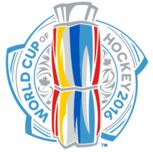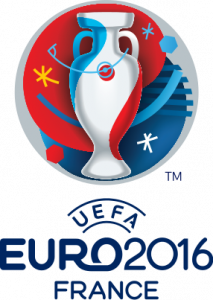Hockey fans will see their favorite players return to the ice a little earlier than usual this year. On September 17th, the puck is slated to drop in Toronto for the newest edition of the World Cup of Hockey–an international tournament which includes some of the premier stars of the NHL. The history of this tournament is convoluted–it’s the spiritual successor of the Canada Cup tournament of the 1980s and early 90s, and was played twice between 1996 and 2004. However, the tournament has been on hiatus since 2004, which may have something to do with the fact that the Winter Olympics have become the greatest international stage on which NHL players can go head-to-head in their national colors. There is rampant speculation that the return of the World Cup, organized by the National Hockey League with minimal input from the International Ice Hockey Federation or International Olympic Committee, represents the end of NHL presence at the Winter Olympics. All politicking aside, the WCH is shaping up to be a fascinating tournament, with established powerhouses, confusing omissions, and intriguing wild-card teams.
At face value, it’s difficult to come up with a scenario in which Canada struggles to get to the tournament’s championship game. The roster from north of the border is chock-full of NHL superstars such as Steven Stamkos, Jonathan Toews, and, of course, Sidney Crosby. Even Canada’s weakest line of Matt Duchene, Joe Thornton, and Claude Giroux includes one of the game’s most exciting young stars, a proven veteran who overcame several personal demons by reaching the Stanley Cup Final this past spring, and the star of this delightful francophone Pepsi commercial. That being said, where Canada truly shines is on defense. No commodity is hotter in the hockey world right now than blue-chip defenders who skate for 30 minutes or more per game, organize plays to create scoring chances, and improve a team’s all-important puck possession. Marc-Edouard Vlasic, Alex Pietrangelo, and Shea Weber would be any NHL team’s number 1 defender (That being said, it’s a disgrace that P.K. Subban, a stellar defender and the NHL’s reigning King of Style was left off the Canadian roster). It’s safe to say Canada has an embarrassment of riches and is well-positioned to succeed in the WCH.
However, hopes for a victory par(eh)de could be doused if the Canadians encounter an almost-unbeatable goalie on the other end of the ice. Latvia gave Canada quite a scare in the 2014 Olympics by relying almost entirely on the puck-stopping ability of Kristers Gudlevskis, and it’s not inconceivable that Canada could find themselves in this situation this year. One of the prime candidates to stymie Canada with a goaltender playing out of his mind would seem to be Finland–Tukka Rask and Pekka Rinne have been two of the NHL’s premiere netminders year-in-year-out (Rinne’s weak 2015-16 notwithstanding). If one of these two goalies can neutralize Canada’s firepower (and bear in mind the New York Times has described excellence in goaltending as reflective of the soul of Finland), the Finnish offense, which includes Jussi Jokinen, Patrik Laine, and Joonas Donskoi could give Canada (or any team for that matter) all kinds of trouble.
Finland’s Scandinavian neighbor Sweden is a perennial hockey powerhouse, and this year is no exception. Goaltending is perhaps a little weaker than usual for the Tre Kronor, as an aging Henrik Lundqvist can no longer be counted on to be top-notch every night. That being said, Sweden’s defense is certainly intimidating, with proven stars such as Viktor Hedman and Erik Karlsson, who has indicated that after multiple stellar campaigns in the NHL, he’s itching to help his country win on the world stage.
Russia has developed a reputation as an underachieving team in recent years, with disappointing early exits from the Olympic tournaments in Sochi and Vancouver. Vladimir Putin’s boys have awe-inspiring firepower up front–the first line combination of Alexander Ovechkin, Evgeni Malkin, and Vladimir Tarasenko is second to none in the tournament. The Russian side also features some relative newcomers such as Nikita Kucherov and Evgeny Kuznetsov, who’ve had breakout seasons in the NHL in recent years. For American and Canadian fans, the WCH is probably one of the last opportunities to see Pavel Datsyuk play on North American soil–the veteran sniper left the Detroit Red Wings for the Kontinental Hockey League at the end of last season. Russia’s defense, however, is quite unexceptional; goalies Semyon Varlamov, Sergei Bobrovsky, or Andrei Vasilevskiy will have to bring their a-games, or we could be saying do svidaniya to Russia after only a few games.
The Czech Republic definitely doesn’t have the star power of other teams in the tournament, but they do have the greatest of all time. All jokes about journeyman defender Michal Jordán aside, the Czechs will be lucky to win a game at the World Cup. True, they have some decent forwards, such as Ondrej Palat, Jakub Voracek, and Michael Frolik, and Red Wings goalie Petr Mrazek is coming off a strong 2015-16 NHL campaign. Fundamentally though, the Czechs are a team full of NHL has-beens and never-weres. The fact that Ondrej Pavalec, a very pedestrian NHL goalie, made this team speaks volumes about the Czech Republic–they just don’t have that much to work with, and may be overwhelmed in this tournament. Maybe they should have included NHL iron man Jaromir Jágr this year, if only for the added entertainment value.
Team Europe is intriguing–the team is made up of players from Austria, Denmark, Germany, France, Norway, Slovakia, Slovenia, and Switzerland, and is making its international debut at the World Cup this year. Traditionally, the Slovaks have played second-fiddle to the Czechs in central Europe, and the other seven countries are international minnows by themselves. Together, however, these countries could be a real competitor in the WCH. The first line of Marián Gáborik (Slovakia), Anže Kopitar (Slovenia) and Mats Zuccarello (Norway) will give any team in the tournament problems, and there’s decent depth on the other three lines. There are slimmer pickings on Europe’s defense–Roman Josi (Switzerland) is decent, and an aging Zdeno Chára (Slovakia) is always a threat, partially because of his sheer size, but beyond these two, the Europeans don’t look to have much on the blue line. Goaltending is suspect for this team–Jaroslav Halák (Slovakia) has been known to keep his teams competitive in games against superior opponents in the past, but his best years are behind him. Still, if a handful of players overachieve, Europe is a viable dark-horse pick to succeed in the World Cup.
Team North America is the other franken-team in the tournament, and, like Europe, could deliver a surprisingly good performance. It’s made up of players from both the United States and Canada, all of whom must be under 23 years of age. Young and talented players have traditionally been left off of national teams in favor of more proven veterans–consider Steven Stamkos’ absence from team Canada at the 2010 Olympics. In theory, the introduction of Team North America should rectify this issue, and allow fans to see some of the most talented young players in the world exhibit their skills on an international stage early in their careers. It would be easy to dismiss North America as a team that is too raw and inexperienced to compete in the tournament. However, forwards Nathan MacKinnon (Canada) and Johnny Gaudreau (United States) are proven stars, goalie Matt Murray (Canada) just backstopped the Penguins to a Stanley Cup in the spring, and defenders Seth Jones (United States) and Aaron Ekblad (Canada) are integral parts of their teams’ bluelines.
Furthermore, forwards Connor McDavid (Canada), Auston Matthews (United States), and Jack Eichel (United States) have each been hailed as the saviors of their respective NHL teams in coming years (McDavid in particular has been called the seventh coming of the Transcendent Canadian NHL Superstar™, and looks to supersede Crosby himself in coming years). The North Americans annihilated a decent Europe team in a pre-tournament game–this team is a legitimate, albeit inexperienced threat to win the entire tournament. The plan is for both the Canadian and American national anthems to be played before all of North America’s games, but if they win the tournament, the Voice is of the opinion that Drake and Future’s entire What A Time To Be Alive mixtape should be played, in the spirit of championships and cross-border cooperation.
Last but certainly not least, the USA is sending a team to the tournament, and they look to be pretty good. Unfortunately, for the past few days, discussion of the American team has centered on head coach John Tortorella’s draconian reaction to the Colin Kaepernick national anthem situation, which is at best an unnecessary distraction and at worst a profound misunderstanding of freedom of speech. Immature antics from Tortorella are nothing new–the man seems to have a fixation on making himself the center of attention.
In any case, the American team is not the best in the tournament at any position, but is remarkably well-rounded. The attack may not be as electrifying as Canada’s or Russia’s, but it includes proven players who can compete in the NHL, such as Zach Parise, Ryan Kesler, Patrick Kane (who is playing a new leadership role), and, of course, national hero T.J. Oshie. The American defense can’t be as dominant as Sweden’s will be, but Ryan Suter, Dustin Byfuglien, and the other Jack Johnson are all part of a defensive corps that looks to be the third or fourth best in the entire tournament. In net, Cory Schneider, Jonathan Quick, and Ben Bishop have been at turns brilliant and exasperating in the NHL–if these goalies play well, the depth and caliber of the American team should be enough to challenge anyone in the tournament, and perhaps make a run at winning the whole thing.
The elephant in the room for the United States is undoubtedly the absence of Penguins winger Phil Kessel. Kessel has been called one of the most overrated players in the league, and casual fans have said he looks more like a tow truck driver than an NHL star, but most observers agreed that Kessel’s stellar performance in Pittsburgh’s championship run this spring invalidated many criticisms. Apparently this shift in perspective was lost on Tortorella and USA general manager Dean Lombardi. If the United States ends up losing in the WCH because of insufficient scoring, there’ll be hell to pay.





